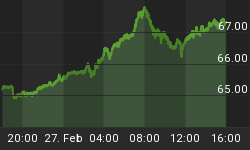U.S. lawmakers are toughening their stance on Iran's energy industry with new economic penalties, but experts doubt the Islamic regime will pay much attention and is more likely to open the doors even wider to other players eager to replace fleeing investors.
Long on Congress' radar screen, Iran is being targeted by two bills: The Senate's Dodd-Shelby Comprehensive Iran Sanctions, Accountability and Divestment Act passed in late January; and the House's Iran Refined Petroleum Sanctions Act approved in December.
The bottom line is these bills, once signed into law by President Obama, will pursue financial institutions and businesses that do business in Iran's energy sector or help the regime build its refining capacity.
To an outsider, the stakes appear high.
After all, Iran, an OPEC founding member, holds the world's third-largest proven oil reserves and the world's second-largest natural gas reserves, according to the U.S. Energy Information Administration.
Not to mention, its pariah status in the world makes luring investment difficult at times.
Despite that, the country is not all that concerned about the latest congressional maneuvering, observers charge.
"I think these measures are a good thing to do but let's be honest [that] the impact is going to be not necessarily immediate, and that the first instinct of Iranian leaders will be to ignore it," said Patrick Clawson, deputy director for research at the Washington Institute for Near East Policy and an Iran expert.
Iranian leaders are confident East Asian firms can fill a void left by major Western companies, Clawson told OilPrice.com. Iran is a major producer, but its oil fields are quite old and it has to do an "extraordinary amount" of drilling, he said. This makes the country a "very attractive place for international oil field services companies which are not represented there," Clawson maintained.
Countries like Russia, China, Malaysia and India may potentially step up to the plate, Alex Vatanka, a scholar at the Washington-based Middle East Institute, said. "The Russians and the Chinese are sitting there thinking: 'Great, Iran can't deal with the West; the market is ours to be had.'"
Venezuela, a long-time U.S. foe, is close allies with Iran too, a Washington source familiar with Iranian issues said on the condition of anonymity. Venezuela has enormous petroleum and refining capacity and is not about to "go along with any embargo," said the source.
The Islamic regime, moreover, believes it can get by without access to Western technology, Clawson noted.
But Iran, which draws 80 percent to 85 percent of its income from oil revenue exports, does indeed look to the West for technology and financing, Vatanka argued. Energy issues are seen as strategically important to Iranians, which means U.S. countermeasures will have an impact across the board, he said.
While Mahmoud Ahmadinejad's government may yearn for Western advances to boost its oil and gas sector, "from a political point of view, they won't give up their nuclear program just for the sake of energy technology," Vatanka added. Iran produces just above five million barrels a day and aims to boost that to more than six million barrels, he said.
"Their threat perception is totally different," he noted. "It's not even looking towards the West." Rather, he said, the Iranian government is focused on battling a "domestic issue" in the form of the country's rising opposition.
In some ways, the United States' unilateral sanctions on gas shipments to Iran would actually be a "lifeline for Ahmadinejad," asserted Patrick Disney, assistant policy director at the National Iranian American Council in Washington. The government has sought to cut gas subsidies for years, which drain 10 percent to 20 percent of the annual gross domestic product, but a "popular backlash" prevents such a move, Disney explained.
"If the U.S. goes after Iran's gasoline imports, the government will have a free hand to drop these subsidies, blame the United States and free up tens of billions of dollars per year," he maintained.
In this latest round of U.S. sanctions, Western companies probably will walk away unscathed, experts say. That's because they have either not injected a huge amount of capital into the energy sector there or have already pulled out of the country, Vatanka noted.
The congressional bills will affect the top suppliers of refined petroleum to Iran, including the Netherlands, United Kingdom, France and Switzerland, a Washington source said.
The ultimate impact of the proposed law depends on its enforcement mechanisms, the source told OilPrice.com. As it stands, Obama can "literally preclude [certain Western] corporations from operating in the United States. So every British Petroleum gas station, for example, would be closed in the U.S."
The White House is studying the final language of the bills, and wants "flexibility" to deal with those countries invested in Iran but also working with the United States in non-proliferation efforts regarding Iran, noted the source.
In the end, it's doubtful the president would actually "bring the ax down on British Petroleum in the U.S. like that," conceded the source.
Right now, though, Congress seems to be pushing for radical steps that will shake up Iran once and for all.
Originally published at: http://www.oilprice.com/article-iran-unfazed-by-congressional-threats-of-new-energy-sanctions.html
By Fawzia Sheikh for Oilprice.com who focus on Fossil Fuels, Alternative Energy, Metals, Crude Oil Prices and Geopolitics. To find out more visit their website at: http://www.oilprice.com















